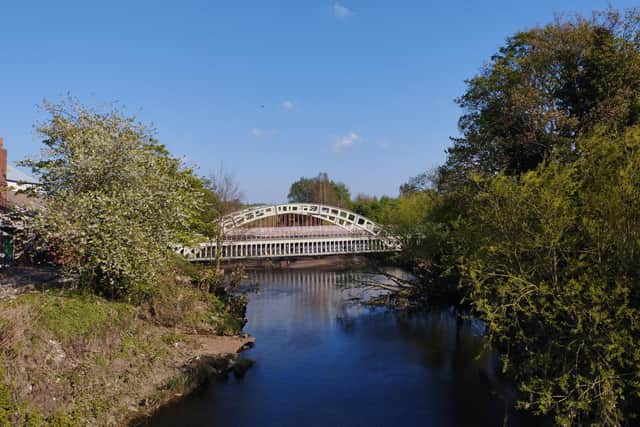Sewage dumping in our rivers is a systemic problem that requires tougher regulation - Dan Jarvis
The stream of waste is the most visible symptom of something fundamentally wrong with this government.
Water is critical to our wellbeing, our economy, our farming, our environment – and that importance is only increasing. Climate change is creating multiple new stresses. Greater and more intense rainfall is increasing the risk of floods like the ones that hit Calder Valley in 2015, while hotter summers may increase the chance of droughts.
Advertisement
Hide AdAdvertisement
Hide AdWith the population growing, water supplies could fail to meet our needs within around 20 years. Meanwhile, around three billion litres of water leak from our creaking infrastructure every day.


Water management hugely affects our environment. It’s not just sewage. Farming especially has a major impact – but also major potential to contribute to solutions like natural flood management.
With massive investment needed, who pays, and how much, is a critical question.
In other words, water is not just another commodity: it’s a vital public resource. We have to manage it fairly, and we have to manage it effectively. Above all, we have to manage it for the public good.
Right now, we are not.
Advertisement
Hide AdAdvertisement
Hide AdTake sewage. The figures above are almost certainly under-estimates, because the government slashed monitoring budgets. Left to police themselves, water companies have inevitably under-reported releases.
The Environment Agency’s £1.6bn budget looks generous, but three fifths goes to (much needed) flood prevention. Since 2010, environmental protection funding has dropped 80 per cent, and for enforcement 40 per cent. Prosecutions fell from almost 800 in 2007-8 to just 17 in 2020-21 – while farms are inspected on average once in 200 years. It’s impunity by austerity.
Even when enforcement happens, it’s a negligible cost of business. England's main water firms were cautioned or fined over sewage dumping hundreds of times between 2010 and 2021, but total fines were just 0.7 per cent of their profits. Executive salaries have soared alongside rising pollution. They have never been prosecuted, even for the most outrageous and illegal incidents.
This is not some operational issue. It’s a systemic problem – a whole approach based on a deeply ideological antipathy to regulation and deliberately naïve willingness to trust companies to hold themselves to account against their own self-interest.
Advertisement
Hide AdAdvertisement
Hide AdMany people point to privatisation, a model only the UK has adopted. They certainly have a point. Water companies paid £57bn in dividends between their 1991 privatisation and 2019 – often making payments even when the headlines suggest they don’t, to shareholders who are now mostly outside the UK, including repressive governments. That’s nearly half the £123bn they invested in the same period. They’ve exploited financial trickery and offshore havens to avoid tax and pay out more, even as customer prices have risen 40 per cent above inflation.
Companies ran up £56bn in debt (from zero at privatisation), largely to pay for those supercharged dividends: investment was covered by revenue.
Privatisation keeps the debt off the public books – but it is still there in a different column. Ultimately it is customers – all of us – who will have to pay it off, with higher interest than government borrowing. Debt and dividends already add around £93 to average yearly bills.
In stark contrast, publicly owned Scottish Water has invested nearly 35 per cent more per household in infrastructure since 2002 than English firms, while charging 14 per cent less. In 2021 its CEO was paid £359,000 – compared to almost £4m at Severn Trent.
Advertisement
Hide AdAdvertisement
Hide AdPerhaps the biggest issue is simply the alignment of interests. Publicly owned or mutual companies simply don’t have the same incentive to subvert or capture regulators.
But of course, public companies can have their own issues around efficiency or politicisation. That’s why better regulation is vital whatever the ownership. In England, it is simply unfit for purpose.
Again, a major reason is structural. Ofwat regulates licences, with only a limited strategic or environmental remit. A reformed regulator should have a social and environmental mission, and responsibility to help push through a coordinated plan to address climate change, pollution and infrastructure renewal.
It should also bring together stakeholders – including local and especially regional government, but also community groups, business, and experts.
Dan Jarvis is the Labour MP for Barnsley Central.